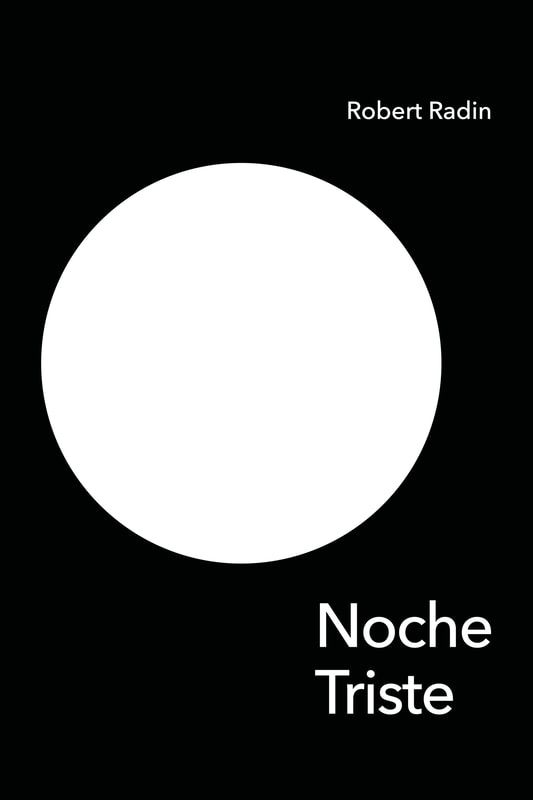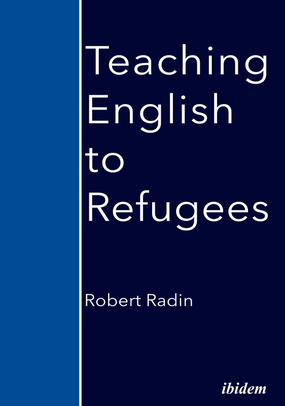Praise for Noche Triste: A Memoir of Anorexia
|
"In this unflinching memoir, Robert Radin describes a painful struggle with anorexia that begins with the diagnosis of a friend’s sister. Interweaving his personal recollections with historical accounts of fasts, holy visions, hunger strikes, and force-feeding, he turns a lens on the role that hunger has played both in public and in private, not only in the realms of medicine and psychology but in art, culture, and religion. Ultimately, though, this is a strikingly intense and personal story framed within the larger context of an illness that continues to defy generalizations."
―Leah Browning, author of Orchard City and In the Chair Museum "Robert Radin’s Noche Triste goes straight to the heart of anorexia and refuses to look away. It’s a heartfelt, fast-paced, often startling study of the disorder’s paradoxes, and Radin’s own passage through them. By disappearing you appear, he writes, and by appearing you disappear. I found it riveting." ―Rosecrans Baldwin, author of Everything Now "Robert Radin’s poignant, beautiful memoir tells the story of his quiet descent into anorexia with grace and sensitivity. Noche Triste is every bit as informative as Hilde Bruch’s classic The Golden Cage. When Radin reveals the traumatic antecedents of his eating disorder, his voice is clear and brave." ―Robert Brandt, Ph.D., clinical psychologist and co-founder of The FACE Program |
Praise for Teaching English to Refugees
|
“We are introduced to Robert Radin’s students, their specific triumphs and hardships, their moments of joy and fear, and he writes with candor of his own Jewish upbringing and gestures with grace and specificity at painful moments and memories in his own history. The book braids philosophic inquiry and intimate personal narrative examining what it means to teach, to learn, to speak, to read, the power of language, and its limits.”
―Nina MacLaughlin, The Boston Globe “Robert Radin’s Teaching English to Refugees does it all, weaving together memoir, philosophy of language, social-justice advocacy, and graphic narrative into a haunting meditation on what can happen when the least powerful among us escape oppression and seek refuge in the United States. With the unerring precision of both linguist and poet, Radin tells a story of teaching English to refugees from such troubled areas of the world as Iraq, Somalia, and the Democratic Republic of Congo. As he struggles to find ways to reach across languages and cultures, a quieter story plays out — his own, where multi-generational Jewish legacies get compressed into incisive and singular moments of prose you won’t soon forget. Through it all, the voices of his Muslim students — haltingly at first, and then with increasing confidence — carve out a space for being all their own. This spare, unsparing, and intrepid book takes a close, unwavering look at some of the hardest stories of our times until nothing is what it seems at first and students become teachers to us all.” ―Katharine Haake, author of The Time of Quarantine and That Water, Those Rocks “Part parable and part memoir, this powerful meditation on language and memory, teachers and students, has a mysterious and magical force to it. It’s a beautiful gift from Robert Radin to his students, and to us, his fortunate readers.” ―James E. Young, author of At Memory’s Edge and The Texture of Memory “Teaching English to Refugees is a major achievement. This compassionate memoir explores the author’s engagement, as a friend and a teacher, with students who seek to find their places in a foreign world. An impressive and stirring story.” ―Merrill Joan Gerber, author of Glimmering Girls and The Victory Gardens of Brooklyn “Teaching English to Refugees is brilliant, poignant, and profound. A master storyteller, Robert Radin offers powerful portraits of his adult students, thoughtful commentary on language acquisition, and vivid personal narratives. Teaching English to Refugees is superb creative nonfiction at its best.” ―Miriam Kotzin, author of Reclaiming the Dead |


